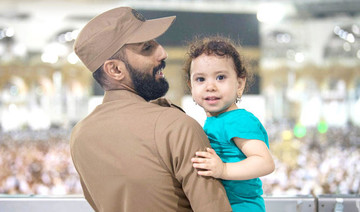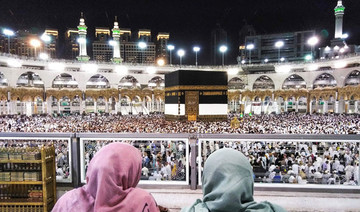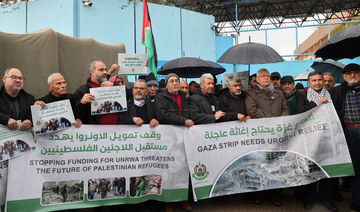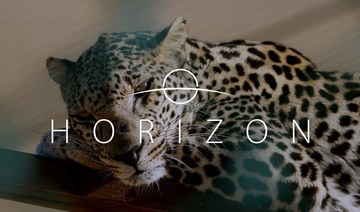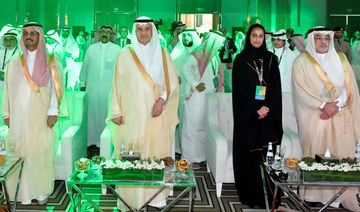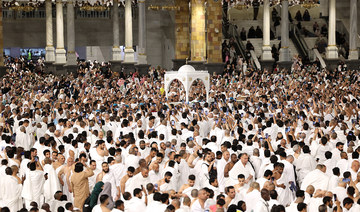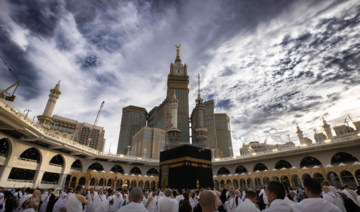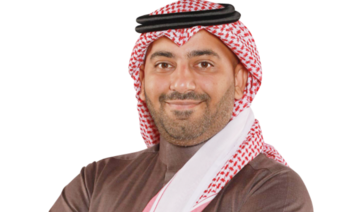MAKKAH, Saudi Arabia: Lost in translation? Not in Makkah, thanks to a dedicated squad of interpreters gearing up to help two million Muslims speaking dozens of languages at the annual Hajj pilgrimage.
The six-day Hajj, which starts on Sunday, is one of the five pillars of Islam, an act all Muslims must perform at least once if they have the means to travel to Saudi Arabia.
Most of the world’s Muslims do not speak Arabic — Indonesia is home to the largest Muslim community by population, while tens of millions of the faithful are native speakers of Urdu.
In all, 80 percent of pilgrims to the western Saudi city of Makkah are non-Arabic speakers, according to Mazen Al-Saadi of the official Hajj translation bureau.
His team provides 24/7 interpretation services in English, French, Farsi, Malay, Hausa, Turkish, Chinese and Urdu — the most widely spoken language among Hajj pilgrims.
For Samir Varatchia, who made the trip to Makkah from France’s Indian Ocean island of Reunion, the men in grey vests — the uniform of the official Hajj translation team — are a welcome sight.
“I really don’t know much Arabic,” Varatchia told AFP.
“The French translation will help us understand things, including the sermons.”
Tunisian interpreter Abdulmumen Al-Saket is happy to help, fielding frequent requests for his phone number.
“We try to help as much as we can, even with reading the maps,” he said.
“Some ask for our personal phone numbers, to call us later if they need help,” he added.
Pilgrims come to Makkah from across the world, including India, Pakistan, Nepal and Bangladesh. Many speak only Urdu, Saadi said.
Many of the signs directing pilgrims are translated into English, Urdu and in some cases, French.
Makkah’s Grand Mosque provides a range of translation and interpreting services to pilgrims.
Specialist departments deal with sermons and rulings, and a hotline is available in dozens of languages to answer religious questions.
But for practical matters, Saadi’s 80-strong team is indispensible.
The department has been in place for four years, he said, and is being continuously expanded to deal with rising demand.
“Most (pilgrims) don’t speak Arabic and are afraid to ask in the event of an accident,” Sanaullah Ghuri, an Indian translator, told AFP in Arabic.
A deadly stampede in 2015 left more than 2,000 pilgrims dead in Mina, the Makkah neighborhood where the symbolic stoning of the devil ritual takes place during Hajj.
Many pilgrims were unable to understand security forces’ instructions, delivered in Arabic.
The Hajj presents Saudi authorities with vast logistical challenges.
Islam is currently the world’s fastest-growing religion, according to the Pew Research Center, which says the number of Muslims in the world is expected to rise from 1.8 billion in 2015 to three billion in 2060.
The Hajj sees millions of pilgrims visit the country, all clad in white, to perform rituals in Makkah’s Grand Mosque and on the Mount Arafat plain east of Makkah.
It ends with Eid Al-Adha, a three-day feast which starts with the “stoning of the devil.”
Saudi Arabia, one of the world’s most restrictive countries, has recently embarked on an ambitious reform program spearheaded by the powerful young Crown Prince Mohammed bin Salman.
That has included pumping millions of dollars into high-tech initiatives.
Providing services for two million pilgrims is no small feat, and authorities are pushing a “smart Hajj” initiative this year to meet the rising demand.
That includes apps providing information on emergency medical services and geographic guides to Makkah and Mina, the two cities home to Islam’s holiest sites.
One app will also translate Hajj sermons into five languages.
But the Indian translator, Ghuri, said the presence of real-life interpreters made the experience of Hajj easier for pilgrims.
“When they see someone speaking their language, they feel more comfortable seeking help,” he said.
Lost in translation? Not for Muslim Hajj pilgrims
Lost in translation? Not for Muslim Hajj pilgrims
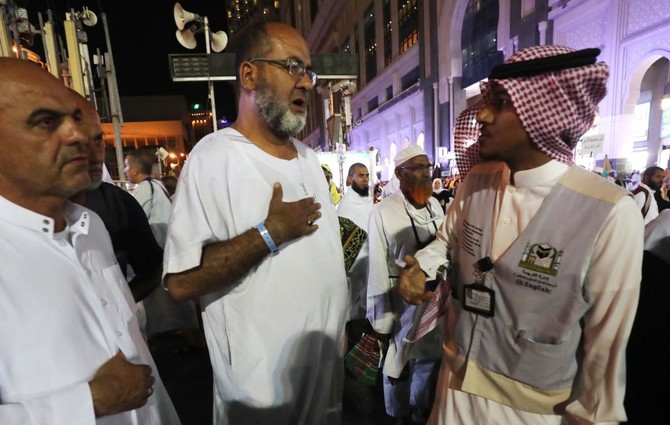
- In all, 80 percent of pilgrims to the western Saudi city of Makkah are non-Arabic speakers
- Many of the signs directing pilgrims are translated into English, Urdu and in some cases, French
Saudi Arabia welcomes independent committee’s report on UNRWA’s performance
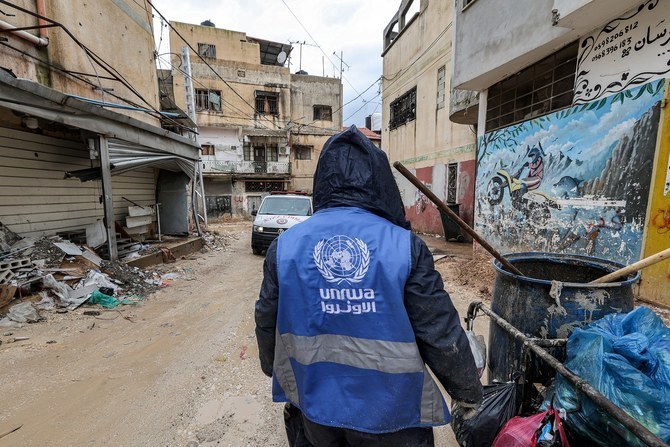
- Saudi Ministry of Foreign Affairs stresses importance of the commitment of donor countries to the organization
RIYADH: Saudi Arabia has welcomed an independent committee’s report on the performance of the UN Relief and Works Agency for Palestine Refugees, the Saudi Press Agency reported on Wednesday.
The Saudi Ministry of Foreign Affairs said the Kingdom backed the report, which confirmed UNRWA’s main role in supporting the relief, humanitarian and developmental efforts of the Palestinian people.
The ministry further reiterated Saudi Arabia’s emphasis on the importance of the commitment of donor countries to UNRWA to ensure the sustainability and effectiveness of all forms of support for refugees in a way that reduces their suffering, especially in light of the Israeli occupation’s continued violations of international law and international humanitarian law.
EU Embassy, Arab News honor makers of Saudi ‘Horizon’ documentary
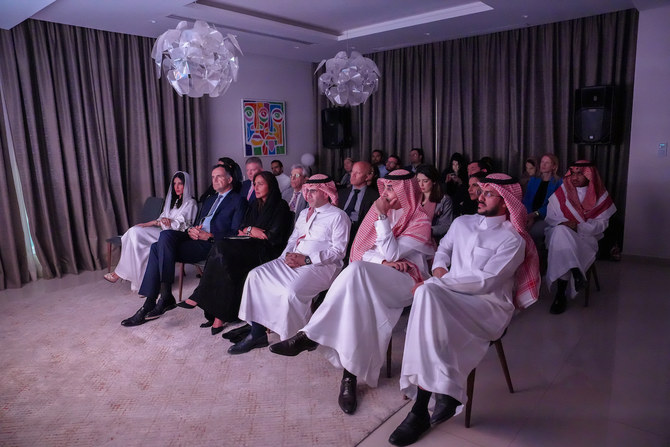
- Princess Lamia: ‘Screening is a reminder of our shared responsibility to protect precious ecosystems’
- Ambassador Farnaud: ‘The Saudi Green Initiative and the European Green Deal have shared goals’
- Abbas: ‘We are delighted to partner with the EU envoy to showcase Saudi Arabian wildlife in a captivating manner’
RIYADH: The makers of a recently produced, highly acclaimed documentary on Saudi wildlife were honored at a special screening of the film “Horizon” at the residence of the EU ambassador in Riyadh.
The new documentary, produced by the Konoz Initiative, is part of a collaboration between the Saudi Ministry of Media’s Center for Government Communication and the National Center for Wildlife.
It explores the ecological treasures and unique habitats of the Kingdom.
Princess Lamia bint Majed Saud Al-Saud, secretary-general of Alwaleed Philanthropies, was a guest of honor. Princess Lamia, through her work with Alwaleed Philanthropies, has recently announced an initiative called Atlai, an innovative artificial intelligence platform to support global efforts to combat deforestation.
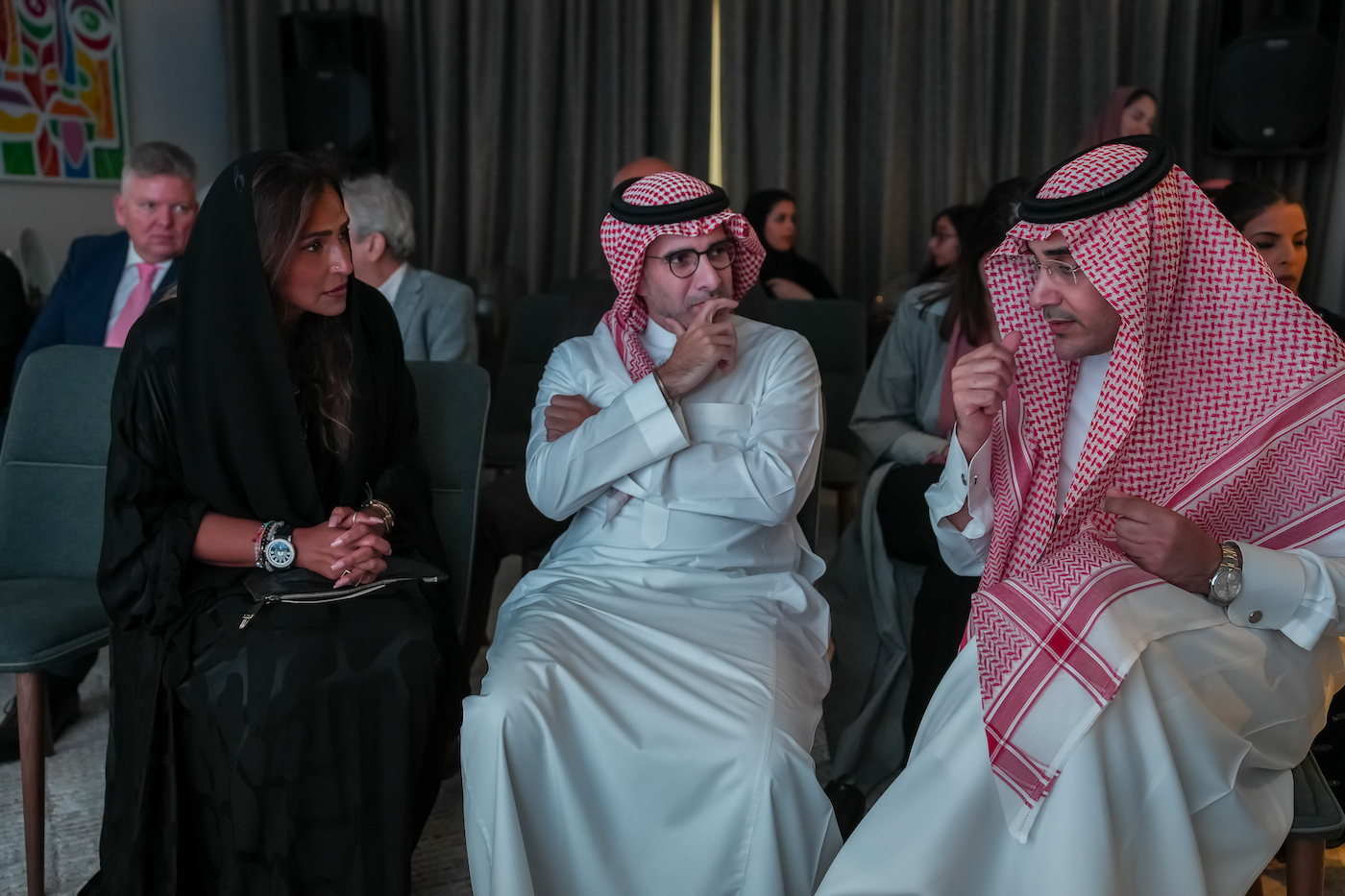
The screening was followed by a presentation of an honorary certificate to Abdullah Alahmari, CEO of Konoz initiative, and Yazeed Albader, associate producer of “Horizon.” This was presented by EU Ambassador to Saudi Arabia Christophe Farnaud, Princess Lamia and Arab News Editor-in-Chief Faisal Abbas.
Farnaud said: “The ‘Horizon’ documentary captures the breathtaking beauty of Saudi Arabia’s diverse natural landscapes and wildlife.
“For centuries, much of the Arabian Peninsula, including Saudi Arabia, held a mysterious attraction for European explorers and travelers.”
The ambassador spoke of the significance of protecting the environment due to basic human needs such as food and water, and dependency on the health of our global environment.
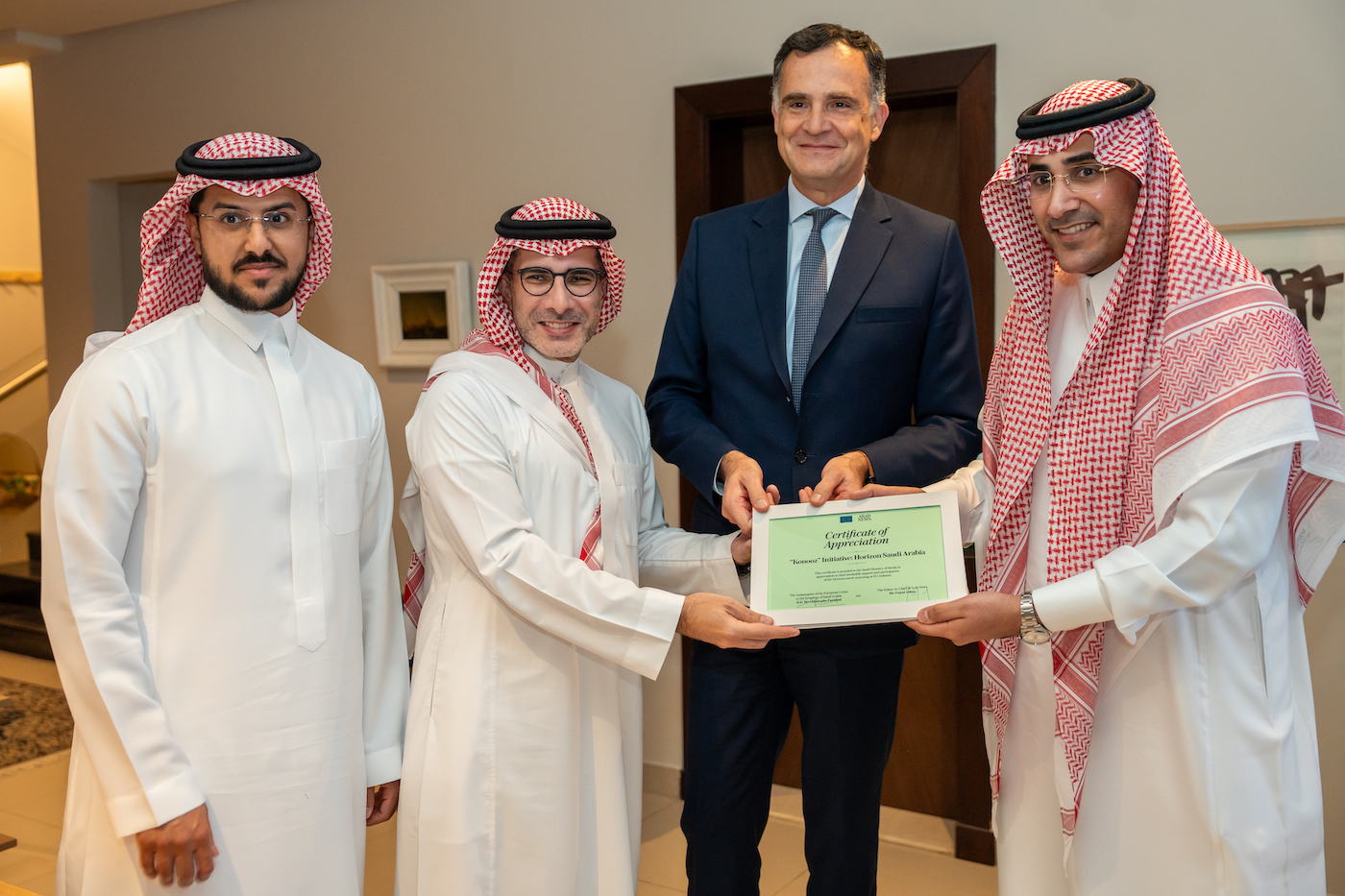
“The Saudi Green Initiative and the European Green Deal have shared goals. We all depend on nature for our food, air, water, energy and raw materials. Nature and biodiversity make life possible, provide health, and drive our economy. Nature is also our best ally in tackling the climate crisis,” he said.
“Climate change, economic diversification and transitioning to renewables remain priority areas for both the EU with its policy of European Green Deal as well as for Saudi Arabia with its Vision 2030.”
Princess Lamia gave her thoughts on Saudi Arabia’s fascinating natural wonders that are featured in the film.
“Through ‘Horizon’ we are transported to the breathtaking beauty and rich biodiversity of Saudi Arabia. This documentary promises to immerse us in the heart of the Kingdom’s diverse wildlife and scenery,” she said.
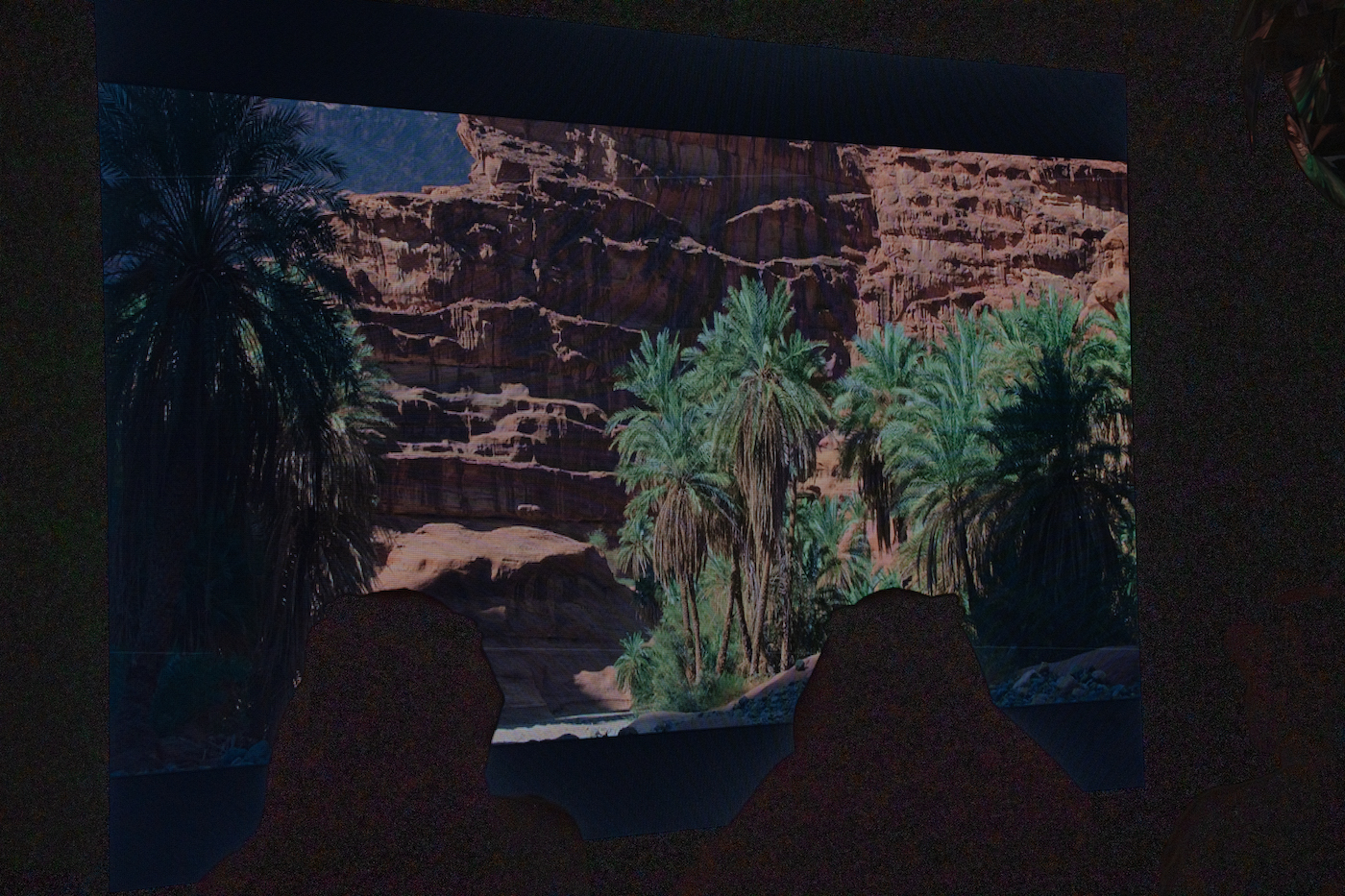
“Tonight’s screening is not only a celebration of Saudi Arabia’s rich natural heritage but also a call to action — a reminder of our shared responsibility to protect and conserve the precious ecosystems that define our world.
“In a time where our forests and natural ecosystems are disappearing at an alarming rate, Atlai, created by Alwaleed Philanthropies, is a testament to the power of innovation and collaboration. It’s about igniting a passion for preservation, a fervor for conservation, and a commitment to safeguarding our planet for generations to come.”
Abbas expressed appreciation for the Saudi team behind the “Horizon” documentary, saying: “We are delighted to have partnered with the EU delegation to host a special screening of this remarkable documentary which showcases Saudi Arabian wildlife in a truly captivating manner.”
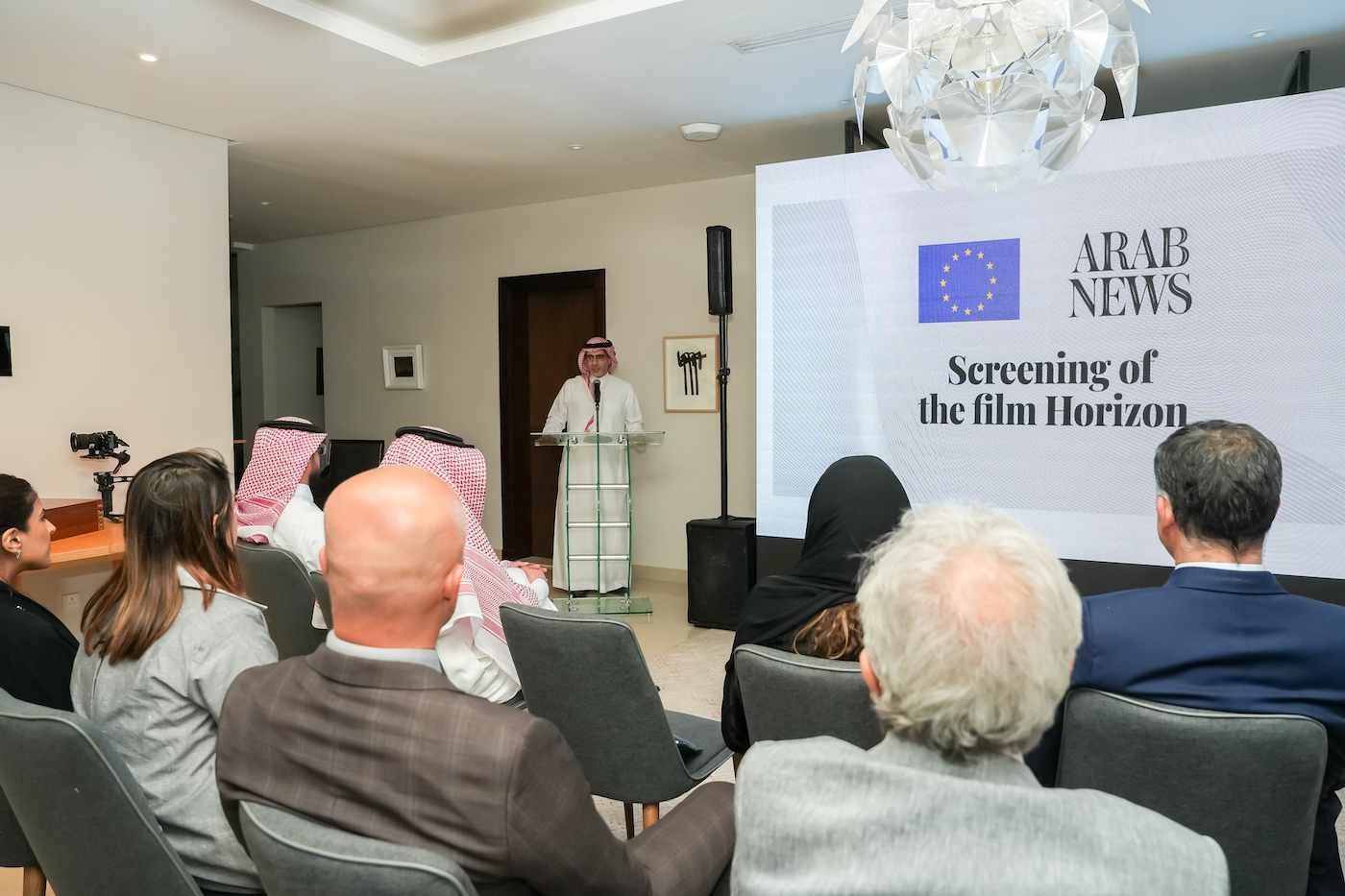
He added: “As part of Arab News Green and Blue initiative, which focuses on environment and sustainability, we are also proud to present the Saudi team behind the ‘Horizon’ documentary with a certificate of appreciation, and thank them for their contribution in preserving and showcasing the wonders our beloved Kingdom has to offer.”
Arab News has recently launched its Green And Blue, an initiative which discusses environmental subjects regarding climate change, desertification, wildlife preservation, sustainability, and green energy, with a close emphasis on the environment in Saudi Arabia.
The CEO of Konoz initiative expressed how thrilled he was to attend the screening of the movie.
“This documentary sheds light on the beauty of Saudi Arabia, its versatile terrain and highlights the wildlife we are blessed to have in the Kingdom,” Said Alahmari.
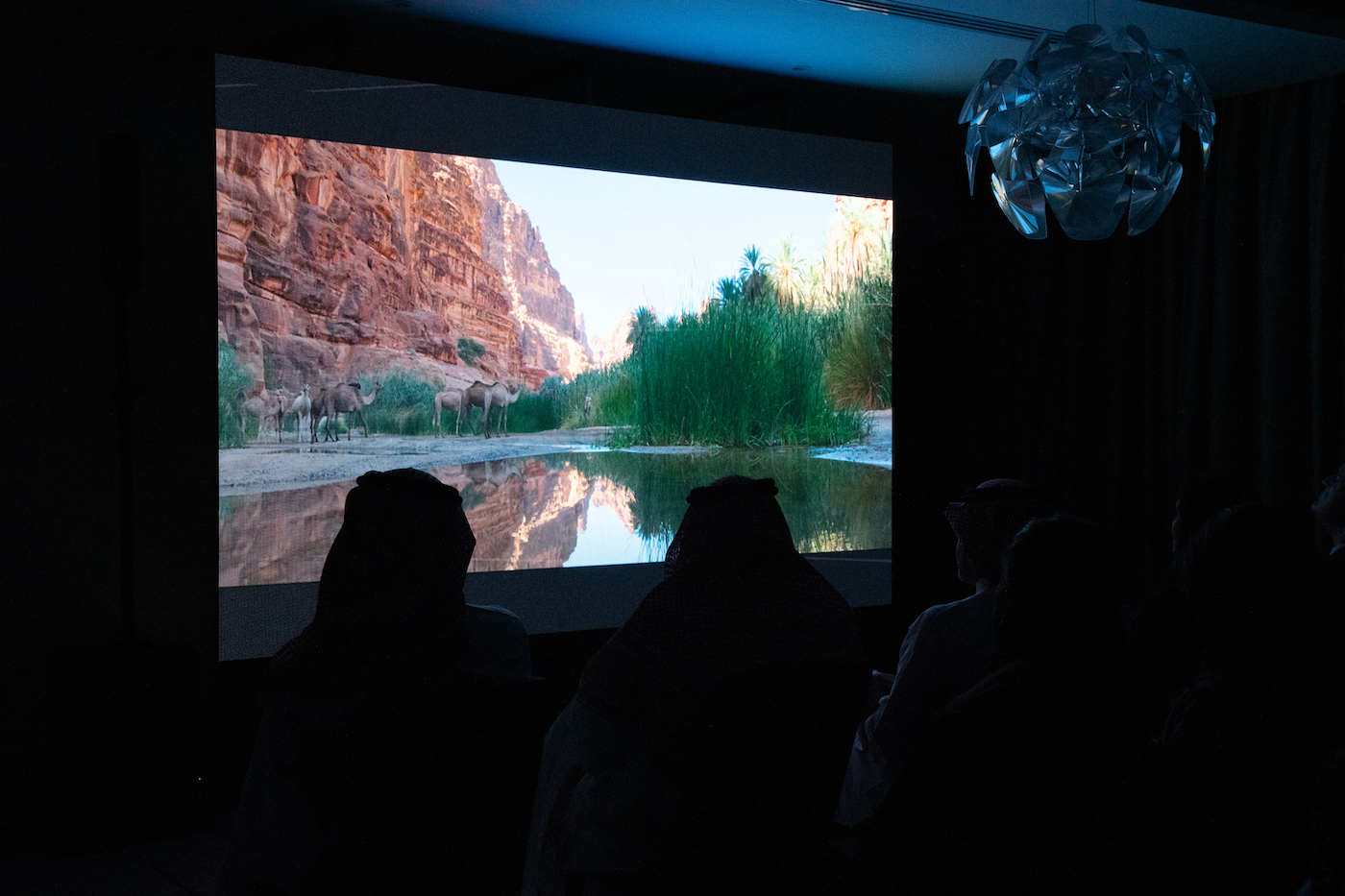
He expressed his appreciation to the Minister of Media Salman bin Yousef Al-Dossary for his constant support in ensuring that the movie highlights the Kingdom and reaches a broader audience.
The associate producer of the work explained how the documentary took more than 260 days of shooting and more than 2,000 hours of recording because it covered all the regions.
“If you want to shoot some of the animals, you may not get luck on the spot. So, you have to do some scouting, you have to arrive a couple of days before, stay for weeks to spot a nice shot, or to get that perfect skyline with the clouds, sunset or sunrise,” said Albader.
“I was honored to be here, the screening was great. It is a pleasure to be here with the ambassadors, and to see how a lot of people care about nature and wildlife. This is just the beginning of many events to come.”
“Horizon” is now available on Netflix internationally.
Inaugural Umrah and Ziyarah Forum focuses on innovative ways to enhance pilgrim experience
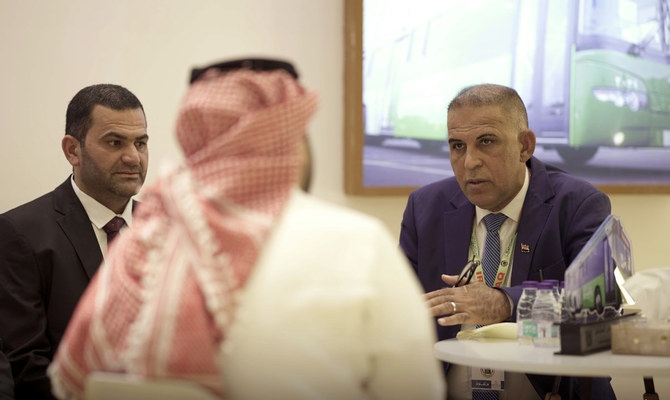
- The 3-day event, which concluded on Wednesday, included 6 discussion sessions and 24 workshops led by 29 experts
JEDDAH: The inaugural Umrah and Ziyarah Forum concluded on Wednesday at the King Salman International Convention Center in Madinah. During the three-day event, participants discussed ways to foster collaborations, enhance the pilgrimage experience and improve the services provided for pilgrims.
The agenda for the forum, organized by the Ministry of Hajj and Umrah in partnership with the Pilgrim Experience Program, included six discussion sessions and 24 workshops led by 29 experts and specialists.
The topics they covered included services for pilgrims and other visitors, advancements in air travel services for pilgrims, financial systems in the Umrah and ziyarah sectors, and development opportunities in housing and hospitality services.
Other discussions focused on services at ports, the automation of operations, ways to improve the efficiency of workers, and the important role of services provided for visitors at holy sites and throughout their journeys in Makkah and Madinah.
One of the key topics was air travel services, with discussions about the growth in flight numbers and the need to provide a comprehensive range of services throughout pilgrims’ journeys beyond those purely focusing on their rituals. For example, participants highlighted plans for the expansion of Madinah Airport to better accommodate the increasing numbers of pilgrims and other visitors arriving there.
Another discussion examined financial services in the Umrah and ziyarah sector, and explored the options for international money transfers, ways to develop financial procedures, and innovative digital solutions for processing transactions.
Other topics included development opportunities in housing and hospitality services, during which speakers emphasized the importance of transparency and the need for full compliance by service providers with the terms of their contracts.
The final day of the event featured two panel discussions, one about the role of technology in finding solutions to the challenges in guest services, and the other on ways to carefully develop historical sites to enrich the historical and spiritual experiences for visitors to Makkah and Madinah.
Who’s Who: Swaied Al-Zahrani, CEO of Saudi Credit Bureau
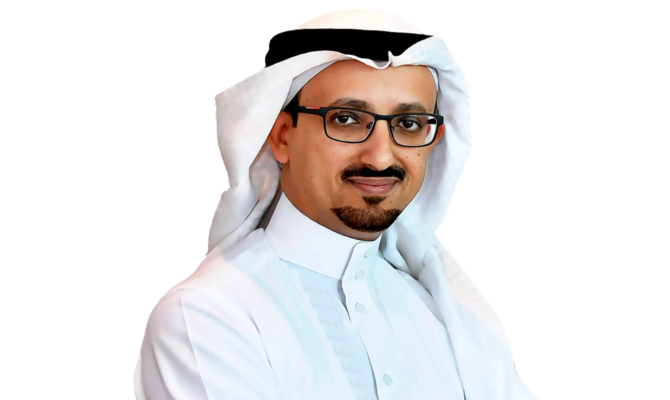
Swaied Al-Zahrani has been the CEO of the Saudi Credit Bureau, also known as SIMAH, since March 2018.
As CEO, Al-Zahrani has guided SIMAH’s short and long-term strategies, ensuring a competitive landscape within the market.
He led major restructuring to enable a future-proof operating model and enhance customer experience. He is focused on improving the governance, risk management, and data management framework and practices.
Al-Zahrani is also a board member of Qarar, a decision analytics company specializing in tailored customer management and lending process automation solutions based in Riyadh, and a board member at Tassnief, the first local credit rating agency licensed by the Capital Market Authority.
He has nearly two decades of experience in the financial sector and is known for his ability to maximize shareholder value through effective strategies, committed to driving innovation and excellence in the financial industry.
Prior to his current role, he worked as chief operations officer at the Social Development Bank in Riyadh from January 2016 to March 2018. He led the bank’s transformation program, focusing on building a new strategy, organizational restructuring, automation and digitalization, customer experience, and risk controls while promoting a savings culture aligned with national strategies.
Al-Zahrani worked for nine years at Al-Rajhi Bank in various domains including IT, business, and banking operations groups, where he participated in major transformation programs.
He holds a bachelor’s degree in computer science from King Abdulaziz University in Jeddah.
Saudi embassy in Cairo receives Kingdom’s first female astronaut

Saudi Arabia’s Ambassador to Egypt Osama Nugali on Wednesday received Saudi astronaut Rayyanah Barnawi, who is currently visiting Egypt, at the embassy in Cairo.
Nugali congratulated Barnawi, the first Saudi female astronaut, on her achievement which affirmed the progress Saudi Arabia is witnessing in all fields, including the space sector and its technologies, in light of its ambitious Vision 2030.
Barnawi, who is a scientist specializing in cancer stem-cell research, traveled into space as part of the Axiom Mission 2 to the International Space Station last year.





